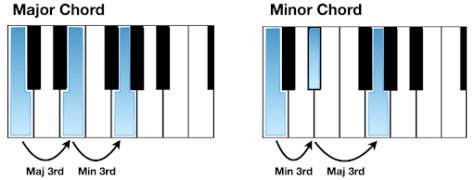Why does music make us feel things?

Dopamine is released not only when listening to music, but when playing an instrument as well.
Have you ever heard a song that was so sad it made you want to cry? Have you ever stopped to think why it had that effect on you? Well, science and music theory might help us explain it.
Sad songs trigger your brain to release dopamine, or the feel-good hormone. But music tastes differ so much, and everyone has a different opinion of what a sad song is, so how does the brain know when to release that dopamine? How does it know whether it likes the song or not?
One aspect is that storytelling in songwriting is all about tension and release. Every note has a very specific purpose. For example, on a scale (do, re, mi, etc.) re and ti usually pull listeners to expect a do. The notes lead listeners towards the tonic (do) which, when they get it, it’s satisfying, and when they don’t, it signals more to come. Sort of like in chemistry where elements always want to become stable, songs always build towards satisfying resolutions (or a purposeful irresolution). A song that does this well, along with some cry-worthy lyrics, can hit hard.
The other aspect is more scientific. At my basic level of understanding, a note is a wave with a certain frequency– based on wavelength and speed. When noise is created, the air around it vibrates, sending waves out into the surrounding space. Our ears detect those vibrations, and our brains convert them into sounds.
There are twelve notes that are widely accepted as the correct pitches in Western music, and repeating those twelve notes at higher and higher frequencies makes the many octaves of a piano. This is called twelve-tone equal temperament. Interestingly, notes have overtones which are basically, as their name suggests, tones that occur on top of a single note. Because the wave’s oscillation changes after the initial strike, a single wave can send multiple frequencies in the span of a single note, which is called the harmonic series.

What’s cool about the harmonic series is that it naturally creates a major chord, which some theorize is where harmony comes from in the first place. And along with that theory, some suggest that humans started associating minor chords with sadness because it is unnatural to the series. However, this is not a proven fact, and other theories speculate that it is more of a cultural phenomenon, rather than a physical one.
So maybe that song made you want to cry because your ears were disturbed by intervals unnatural to the harmonic series… or maybe not. Maybe in the end, too many factors govern the way we feel about a certain song, too many factors influence our music taste– there’s no way of explaining it all. How cool is it, though, that music is powerful enough to make everyone feel something completely different when listening to the exact same song?
By Elyza Tuan ‘23, Editor-in-Chief
23etuan@montroseschool.org










